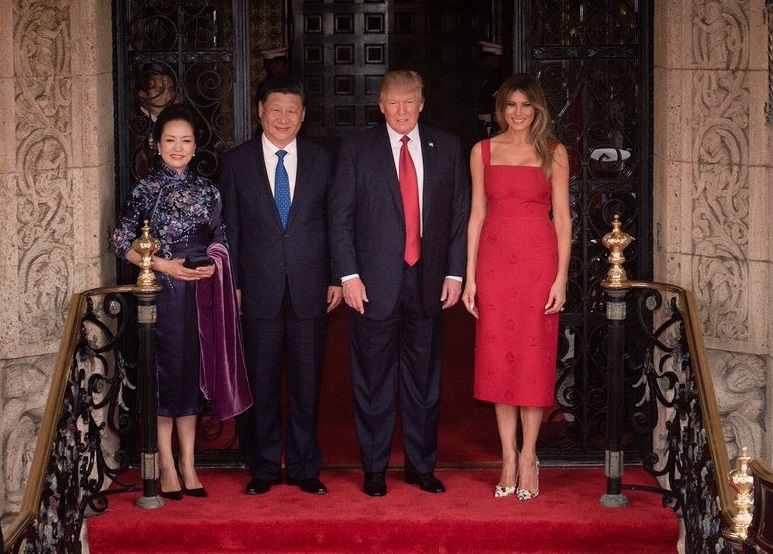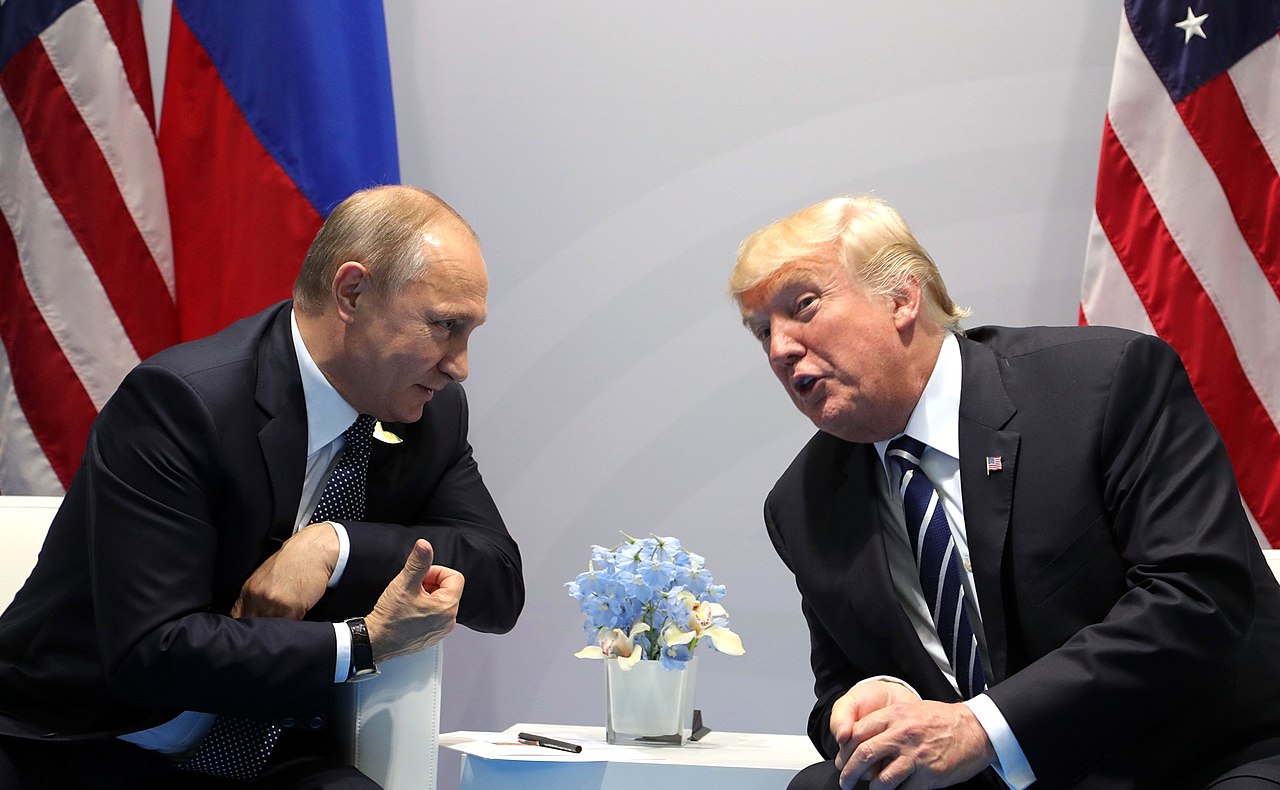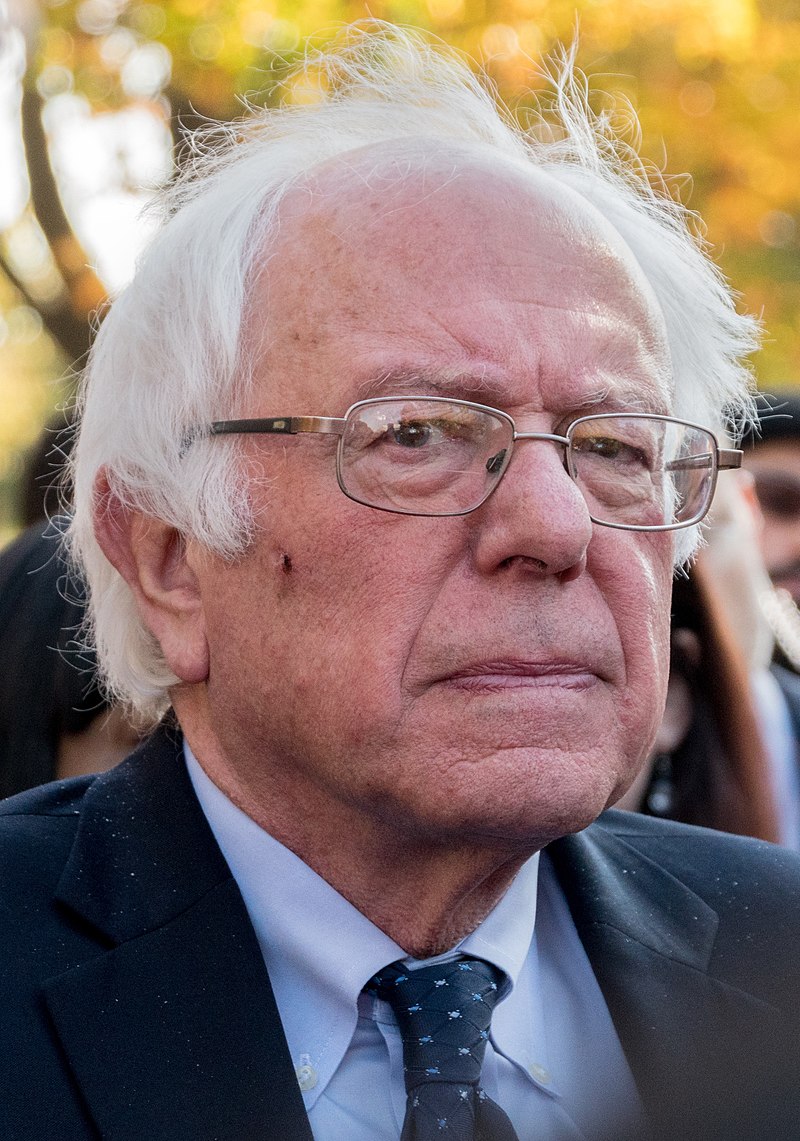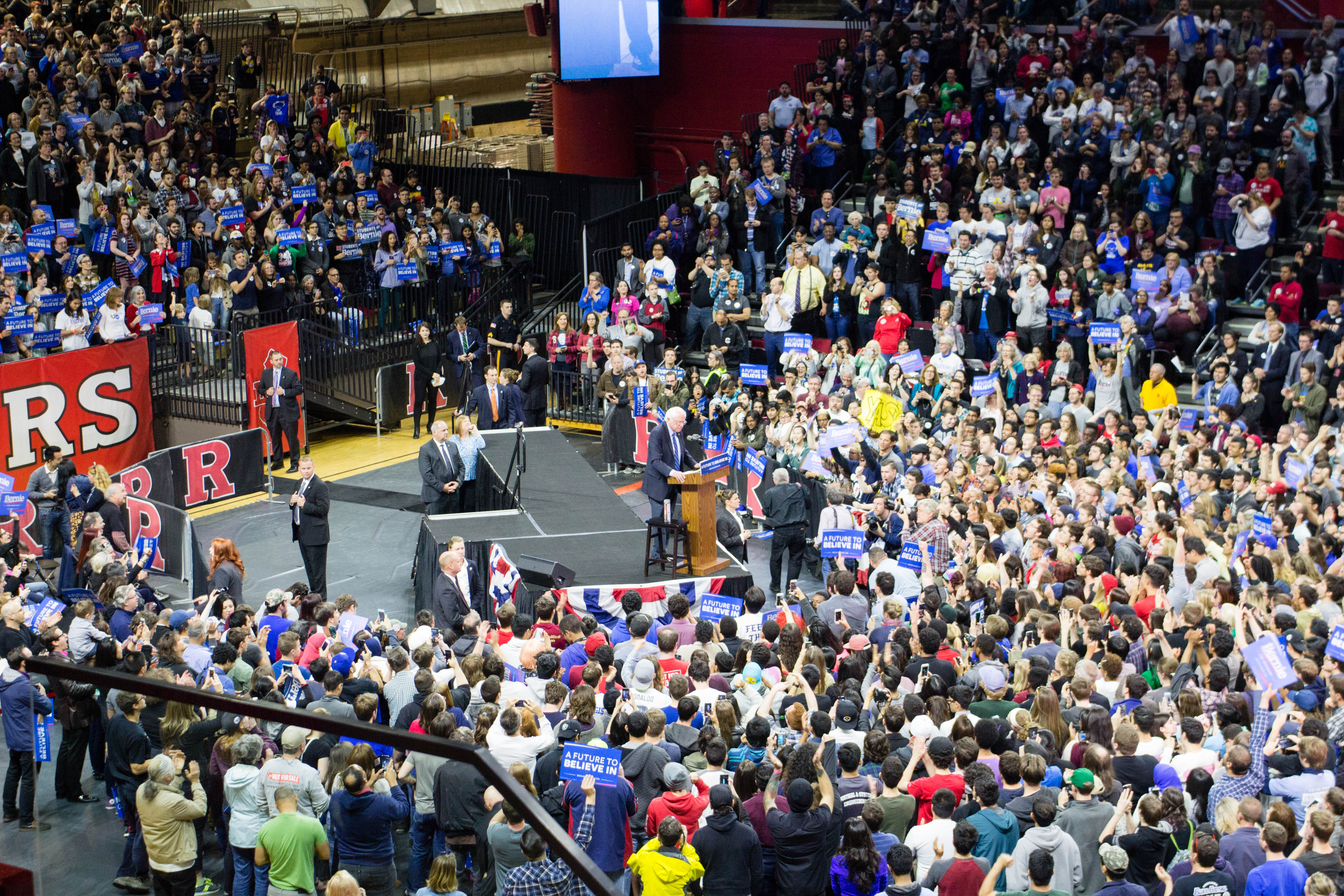Rivalries, dangers and possibilities
By Frieda Park
The Soviet Union was dissolved at the end of 1991and gangster capitalism took over accompanied by drastic falls in living standards. Though Russia inherited the rights and obligations of the former Soviet Union, as the nascent Russian capitalists fought among themselves for control of its resources, it no longer posed the same threat and certainly not the alternative that socialism offered.
In 1989 Francis Fukuyama, the neo-conservative US academic, anticipated that the end of the Soviet Union meant the end of socialism and declared that this also meant “the end of history”. He believed that the battle for “liberal democracy”, i.e. capitalism, had been won and had been won for ever.
Whilst the transition from socialism to capitalism was chaotic in Russia, the lessons were learned by China’s rulers who have taken it on a more managed and peaceful path to capitalism. That it is currently more influential in the world than Russia owes much to this process.
As socialism was defeated everywhere else only tiny Cuba soldiered on. Due to its resilience we can celebrate 100 years not just since the Russian Revolution, but 100 years of socialism in practice.
What does the world look like nearly 30 years from the so-called end of history?
WAR
We see that socialism was not the threat to world peace it was painted as being nor was the conflict between capitalism and socialism the biggest threat to the existence of humanity and our planet. The conflict between competing capitalisms provides a much greater danger. Though there were points of great tension, including the nuclear stand-off of the Cuban Missile Crisis in1962 and the Vietnam War, these did not result in all out conflict between the two systems. This was largely due to the Soviet Union’s desire to avoid such a war.
The actual threat posed by the Soviet Union was one which, took swathes of the world out of the imperialist ambit, promoted peace, supported countries in the third world and the non-aligned movement and provided reasonable living standards and opportunities for its people. With that “threat” gone capitalism became unconstrained in imposing its will and with frightening results.
The world is now a dangerous place. Is it more dangerous than it has ever been? That would be a difficult thing to measure, however it is clear that there are a number of flashpoints which could lead to conflict between nuclear powers and where there are on-going wars. Millions of our fellow human beings are suffering death, destruction, displacement, disease and hunger. Children are orphaned and injured. Lands are devastated. Cities, industries and agriculture are destroyed. Economies are shattered and even cultural heritage is being attacked.
The desire for economic and strategic dominance by the USA and other countries, including Britain, is fuelling this. The current most dangerous stand-off is in the Korean Peninsula which is dealt with in more detail in the article West’s Dangerous view of North Korea.[1] There are continuous wars in the Middle East and there is still a volatile situation in Ukraine, right here in Europe, which has slipped off the mainstream news agenda.
Other significant areas of conflict exist like the competing claims to sovereignty and resources of China, Japan and Russia in the South China Sea. In any of these numerous conflict zones, an accident, misunderstanding or impetuous act could take us over the brink and into all-out war between big powers. This includes the possibility of war between the US and Russia, which could happen in Ukraine or Syria. China tends to be more circumspect militarily, but Trump’s volatility and confrontational approach could have similar consequences in Korea and the Asia Pacific region.
ECONOMIC CRISIS
Nor is capitalism, to coin a phrase, “strong and stable” in itself. Less than 20 years into the end of history and the triumph of liberalism came the financial crash from which, 10 years on, it is yet to recover. Not only has it not recovered, but the underlying problems that caused the crash in the first place were not really addressed and are re-emerging. This includes unsustainable amounts of household debt and mortgage lending. For example, in Britain average household debt – mortgages plus consumer credit - is 140% of income. Many, many people have debt because they cannot live on what they earn, like the nurses who use food banks. Even the recent small increase in the Bank of England base rate will have an impact on families with tight finances. The average mortgage for a first-time buyer was 2.6 times their income in 2000, since 2012 has been 3.45. But partly that is what low interest rates were designed to do to increase debt and consumer spending – no lesson learned from the financial crash there about the unsustainability of this model.
Despite some nods towards reforming it, the financial system remains volatile, opaque and so complex that even those who work in it have only a limited idea of its actual operation. Hedging, futures trading and almost incomprehensible financial instruments appear as “wealth”, but lack reality. Yet this parasitic core is what capitalism is now – it cannot be unwound or seriously reformed. Another crisis could happen any time.
THE NEO-LIBERAL WORLD (DIS)ORDER
The themes of the neo-liberal world (dis)order seem clear:
- There is inherent economic instability
- There is increasing inequality between and within nations and in advanced capitalist countries an actual fall in living standards.
- Imperialism is willing to use war and the threat of war to achieve its ends. In fact it often seems like a first resort, with less and less attempt to find fake justifications. The United Nations and international law have been totally side-lined.
- There is a threat of nuclear war.
- Imperialism has long used proxy actors, like Osama bin Laden in Afghanistan, to pursue its ends. These terrorist organisations now have a life of their own as a major force in Middle East conflicts.
- It has also engaged in divide and rule to maintain its power, however, the regional differences it has fostered have also spun out of control.
- On top of economic crisis and military conflicts capitalism is experiencing major political crises. There are open divisions within ruling classes, their machinery of state and their political parties. The US Presidential election had the FBI intervene against Clinton, yet Trump was not the President capitalism wanted. Since then Trump has not been reined in by the dominant wing of the establishment which is now pursuing him through the Russia investigation. In Britain we had the vote to leave the European Union and since then the Tory Party’s Leave and Remain factions have been openly at war. Furthermore, it seems democracy can no longer be easily manipulated to give the desired result with the growth new left-wing forces, nationalism and the far right.
- The weaknesses of the old imperial powers, have meant increasing roles for Russia and more particularly China in shaping world events.
MIDDLE EAST
The Middle East is being totally devastated by imperialism’s mission to defeat any remnants of secular, anti-imperialist governments and gain control strategically and of resources. As well as the invasion of Afghanistan, there has been the overthrow of Saddam, Gaddafi and the war in Syria.
President Assad, however, decided that he was not going to be dispatched with the same ease as the others and has fought back increasingly successfully with Russian and Iranian backing. Without any seeming irony the western pretext for turning the area into a living hell had been the War on Terror, which it pursues by encouraging terrorists to act on its behalf and even though they turn on their benefactor. One can see how terrorist threats at home help stoke fear, division and buy support for war, but they can also have the opposite effect.
We have just passed the 100th anniversary of the Balfour Declaration and the 60th anniversary of the partition of India. Imperialism’s long-term technique of playing divide and rule is also being well deployed just now, however having unleashed these forces they too seem to be less and less in the control of their creators. Regional powers are increasingly in conflict with each other. The stand-off between Saudi Arabia and Qatar is an example. Both are trying to assert themselves as regional powers and Saudi Arabia has also been interfering in Lebanon and launched the devastating war against Yemen. These moves are also designed to counter Iran’s growing influence. Israel is supportive of Saudi efforts and they are building closer ties.
In an attempt to carve up (partition) Syria, the US is espousing the cause of the Kurds which annoys Turkey, with its own large Kurdish population. This has caused Turkey to move closer to Russia. The plan is to divide Iraq and Syria and in the service of this, as well as promoting the cause of the Kurds, Sunnis and Shias are played off against each. The hope is to create small client statelets which can be manipulated and which pose no threat to US interests.
PEACE MOVEMENT
With no end in sight to the horror that is happening in the region, never was there a greater need for an active peace movement here with the clarity to oppose US and Western aggression without getting side-tracked by fears of being seen as apologists for Putin or fake atrocities. The movement in Britain has been relatively silent. Maybe people hope that Corbyn and Thornberry can do the job, but as on every other issue the Labour leadership is under huge pressure from the right. Without a strong movement outside parliament their power is greatly diminished.
THE USA
The USA remains by far the world’s strongest nation economically and militarily. Policy under a Hilary Clinton presidency would have been predictable in defending and promoting US interests through further military intervention, trade treaties such as TTIP etc. However, we have President Trump who by contrast is defending and promoting US interests in an unpredictable way, which serves to undermine the rationale of the neo-liberal world order. His interpretation of what it takes to “Make America Great Again” is based even more crudely on threats of force, bullying, confrontational rhetoric and unilateral action. Diplomacy seems to be virtually redundant, with little recognition that other actors, including even allies, have interests that need to be the subject of compromise. So TTIP was killed off, NAFTA is under threat and the Iran nuclear deal likewise. Mexico has one of the more right-wing governments south of the border, yet Trump spends time threatening and insulting it, from demanding it pay for the wall to failing to send condolences on the recent earthquake. These attitudes have also brought us to the brink of nuclear war in Korea.
In the longer-term Trump’s approach may actually undermine the advances made by the right in South/Central America and the Caribbean.
CUBA
His policy on Cuba represents a return to the old, failed thinking dictated by right-wing Cuban-American politicians. All the achievements of Obama’s carefully calibrated diplomatic negotiations are in peril and are already being rolled back. For example, restricting travel and business dealings, slashing the numbers of diplomats and a partial closure of the only recently reopened embassy; not to mention the bizarre allegations that the Cubans have been engaged in sonic warfare against the US embassy in Havana. The blockade and trying to isolate and punish Cuba completely failed in its objective of undermining socialism there. Obama’s expressed aim was to undermine it by opening it up to contact with capitalist ideas, consumer goods and tourists. In this context “reformist” elements within the Cuban government talked about embracing the Chinese model and economic liberalisation was well underway. Where now for Cuba? If there is no payback from the US will the impetus to embrace capitalist relations of production stall?
INTER-IMPERIALIST RIVALRIES
For the US confrontation and the naked use of power may work to an extent, but ultimately it is leaving the world stage open to other actors – rival imperialist powers and rising powers such as Russia and China, who are gaining ground in conflict zones, in developing countries and in forging new trade alliances. The US is alive to this threat with Trump off and on railing against both countries. The conflict in Ukraine and in the threats against North Korea originated from attempts by the US and other Western countries to encircle and contain Russia and China militarily.
However, the other main imperialist countries or blocs seem to be doing less than Russia or China to exploit US weakness. Whilst in competition imperialist powers also often have common interests and collaborate. It almost feels as though there is a sort of paralysis arising from uncertainty as to how to deal with Trump, which is exacerbated by their own problems. Mostly they seem to hope that they can ride out the Trump administration and get back to business as usual come the next Presidential election. The EU/Germany/France, Britain, and Japan do not seem to be trying to move in to take the initiative from the US. Each had its own preoccupations.
THE EUROPEAN UNION
The EU is increasingly less coherent as a bloc as it expands to embrace countries with very different levels of wealth and political cultures. It appears preoccupied with internal affairs and is still trying to decide whether to centralise more or have different speeds (or categories) of EU membership. Whether to have its own armed forces? How to deal with the threat of separatism in Spain and elsewhere? To expand or not to expand? Etc.
For all the condescension of their negotiators, Brexit is a major blow especially to Germany which always had a solid ally in Britain for out-right neo-liberal policies. Yet their only tactic is playing hard-ball to try to punish Britain as it exits or to beat it into submission so that the Brexit decision is reversed. There is no sign of trying to woo Britain back to the fold. Merkel’s power is fading as she tries to maintain Germany’s dominant role in the EU, providing as it does a big internal market for German goods and services and a ready supply of cheap labour. The consequences of this have proven fertile ground for the growth of the far right.
Emanuel Macron the new right-wing President of France is the great white hope of media commentators. How wonderful that France did the sensible thing and elected a pro-EU politician committed to neo-liberalism. It can be done! The old right-wing and social democratic parties may be moribund, but a new champion can emerge – how the British ruling class must wish it could pull a similar rabbit out of the hat. Yet a portion of Marcron’s support was a vote against Marine Le Pen more than a vote for him, not the ringing endorsement that commentators are deluding themselves with. His success may be limited and not something which can be replicated elsewhere. He is also facing opposition to his neo-liberal agenda.
RUSSIA AND CHINA
Though nothing like powerful enough to challenge US hegemony, Russia and China seem to have got friendlier and both are making a significant impact.
Having said that Russia is not in the same league as China. The economy is still heavily dependent of the exploitation of natural resources and volatile prices for these products, particularly oil. However, Putin has created a sense of order and political stability. He has played his cards well in the international arena, setting the agenda in Syria and disrupting US and EU intentions in Ukraine.
CHINA
It is China, however, which is developing a vast global reach economically, politically and increasingly militarily. This strategy pre-dated Trump’s election, but the Chinese government will hope to capitalise on the instability of his administration, Japan’s continued weakness and the EU’s problems.
The Western media were quick to laud President Xi Jinping as the voice of reason against Trump when he praised globalisation at world economic forum in Davos and for China taking a lead on climate change
China is the world’s second biggest economy by GDP after the US. It is the largest manufacturing economy in the world and the largest exporter of goods. It is also the world's fastest growing consumer market and second largest importer of goods.
The yuan was made one of the five IMF reserve currencies in 2015 and China is becoming more active in these established international capitalist bodies, for example, participating in the IMF bailout of Ukraine in 2015.
It has been increasingly active in establishing trade agreements with other countries, such as the 16+1 group of central and eastern European countries which encroaches on the EU’s territory. It has set up bodies such as the BRICS Bank and the Asian Infrastructure Investment Bank which has 70 members including all G7 countries except Japan and the USA.
Throughout the world now Chinese investment can be found which earns it access to natural resources, agricultural produce, land and industrial production. These in turn create political and economic leverage. It started out on this strategy by going where imperialist interests were less keen to go making major investments in Africa, which had been written off by others as a “failed continent”. It is now opening out and making more extensive moves, though mainly still trying to avoid direct conflict with the US.
In the finance sector: The China Development Bank has a bigger overseas book of assets than the World Bank, with the Export-Import Bank of China close behind. The Chinese central bank has extended currency-swap lines to over 30 countries.
Now it has started the ambitious One Belt, One Road project (OBOR), called the new silk road, which was launched in 2013, aiming to span 65 countries in a land corridor (Belt) from China through to Europe. The other part is a maritime route (Road) embracing the likes of Indonesia, India, Africa, through Suez to the Mediterranean and joining with the end of the land route at Venice. So far it has invested hundreds of billions of dollars in things like roads and railways. But also, for example, China took a major controlling interest in the privatised Port of Pireaus in Greece and is planning a high-speed railway from there to Hungary and Germany. The intensive nature of the investment along the route can be seen, for example, in projects being developed in Pakistan which include: a nuclear power station, a hydro-electric power station, a new highway and a coal mine. So far contracts for OBOR projects have overwhelmingly gone to Chinese companies, but the ones that do go to local and foreign contractors still add up to a lot of cash and the Chinese government is talking of $4tr investment in the project. Interestingly, China plans to maintain long-term management of OBOR projects. It is said that China sees itself as central to a European/Asian region. Compared to the US position as central to the trans-Atlantic and trans-Pacific regions. In trying to create this new centre it is trying to re-configure the economic/geographic view of the world.[I]
So far China has projected itself as using “soft power” the key word being “power”, however it is now developing its military strength as well. It is the fastest growing and modernising military power in the world, including developing its own arms industry and military technologies. It has the second largest defence budget in the world which has grown 10% annually over last 15 years. It is the 3rd largest exporter of arms. Most significantly it established its first overseas military base last year in Djibouti in the Horn of Africa – an area of strategic importance to the success of OBOR.
DANGERS AND OPPORTUNITIES
We may be witnessing a world which is being reshaped as the dominant imperial powers are mired in difficulties and new ones contend. Historically this is a new phenomenon. This could also be a very dangerous world, especially since the forces for progress, though not at the low point they reached in the 90s and noughties, nevertheless are not yet motivated by a clear socialist agenda. But socialism, even though people might not really know what it is, has begun to spark imaginations again. Capitalism may not yet face the threat of socialism re-establishing itself as a world force, but it has not created stability and certainly not won a consensus to support liberal capitalism, quite the reverse.
In Britain we have seen the vote to leave the EU, the rise of Scottish nationalism and the success of Jeremy Corbyn. Across Europe there has been the rise of the far right and of left parties like Syriza and Podemos, plus nationalist movements as in Catalonia. In the USA there was the defeat of neo-liberalism’s anointed heir, Hilary Clinton, and the election of an extreme right-winger. But Bernie Sanders also did well and energised a mass movement to support his policies. In South America there has been the success of left governments of a wide variety of hews and in the Middle East, Africa and Asia the rise of Islam as a political and military/terrorist force. This does not look like the “end of history”.
The prospects for socialism reasserting itself depend on the crises and contradictions of capitalism, our ability to win people ideologically and organise politically. We seem to be rather short of the mark in terms of these latter requirements. On balance right-wing and fascist parties seem to be relatively more successful, but then they do not represent a threat to the continued existence of capitalism and have always been an option for the ruling class. Left parties which have sprung up in Europe like Syriza, are very broad churches without a coherent ideology and have demonstrated their weaknesses in not facing down capitalism.
In South America, social democratic and populist parties have struggled and sometimes failed to withstand destabilisation and the onslaught of the right abetted by the US. The fight in Venezuela for sovereignty and to defend the gains of the Bolivarian Revolution demonstrate just how tough it can get to take on imperialism. But if neo-liberalism cannot find the means to regulate itself and offers us only a world of chaos, war and inequality, then that only demonstrates all the more the need for socialism. We must resist the view that things are so dangerous that the best we can do is to try to help capitalism stabilise itself – a hopeless task which will discredit its messengers who will be complicit in its continued crimes. Instead we have a great opportunity in the crises that capitalism faces to expose it as a failed system and to argue for the socialist alternative
[1] West’s Dangerous view of North Korea – Simon Korner. The Socialist Correspondent Issue 30.
[i] Our Bulldozers, Our Rules – the Economist 2/7/16

China's President, Xi Jinping and US President, Donald Trump with their spouses.

2017 at the G20 Summit: Russia's President Vladimir Putin and Donald Trump.

the Port of Shannghai's deep water harbour on Yanshan Island in Hangzhou Bay became the busiest container port in the world in 2010.

Bernie Sanders
"In the USA there was the defeat of neo-liberalism's anointed heir, Hilary Clinton, and the election of the extreme right-winger, Trump.
But Bernie Sanders also did well and energised a mass movement to support his policies."

Bernie Sanders rally at Rutgers University in the State of New Jersey.






